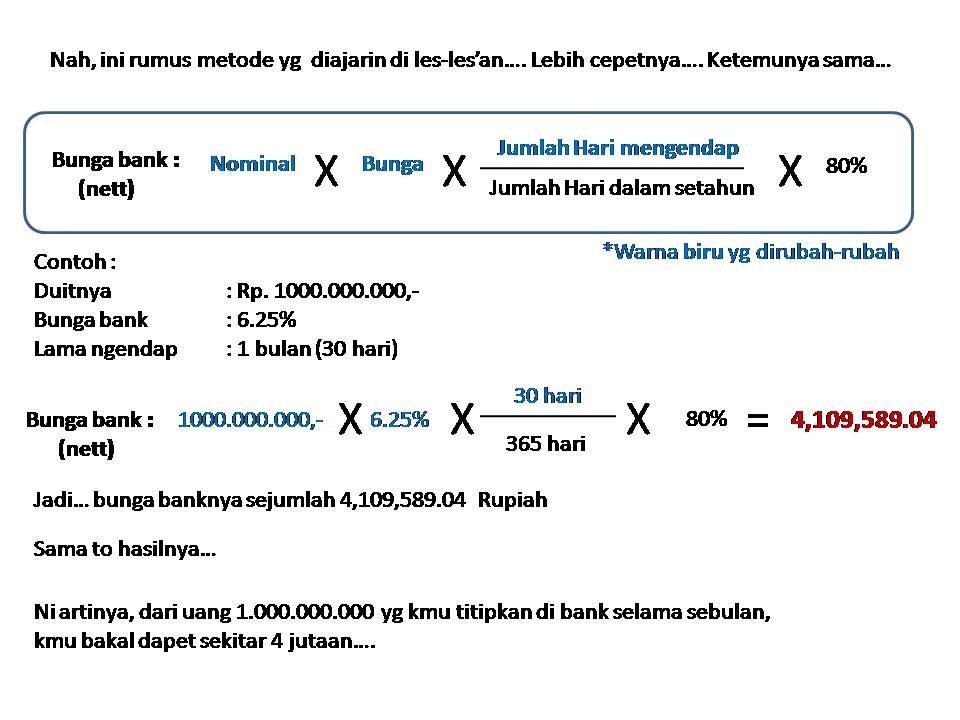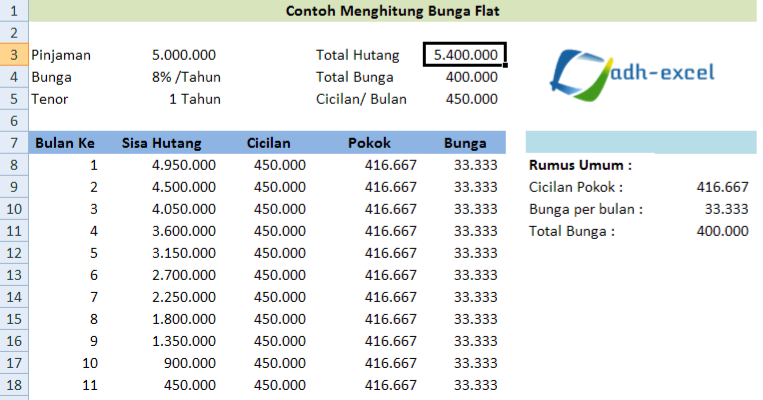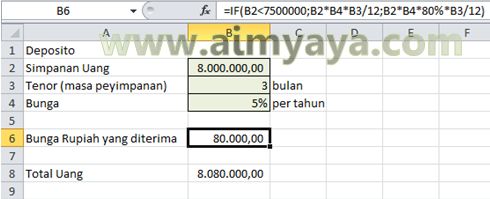Unlocking Your Deposit Interest: A Comprehensive Guide
Ever wondered how much your deposit will grow over a year? Understanding how to calculate annual deposit interest is crucial for making informed financial decisions and maximizing your savings potential. It's a fundamental skill that empowers you to track your financial progress and set realistic financial goals.
Calculating deposit interest isn't just about crunching numbers; it's about taking control of your financial future. By understanding how interest accrues, you can compare different deposit accounts, choose the best options, and plan your long-term financial strategy more effectively. This knowledge is the key to unlocking the true power of your savings.
The concept of interest dates back to ancient civilizations, where loans and lending were common practices. Over time, the methods for calculating interest evolved, leading to the formulas we use today. The ability to accurately determine deposit interest became essential for both lenders and borrowers, contributing to the development of modern banking and financial systems.
One of the key issues related to calculating deposit interest is understanding the different interest rates offered by various financial institutions. Factors such as the principal amount, the interest rate (expressed as a percentage), and the compounding period all play a significant role in determining the final interest earned. Neglecting these factors can lead to inaccurate calculations and potentially misleading expectations about your returns.
Before diving into the calculations, let's clarify some key terms. The principal is the initial amount you deposit. The interest rate is the percentage at which the bank pays you for keeping your money with them. The compounding period is how often the interest is calculated and added to your principal (e.g., annually, semi-annually, quarterly, monthly, or daily). Understanding these terms is the foundation for accurate deposit interest calculation.
To calculate simple annual interest, you multiply the principal by the interest rate. For example, if you deposit $1,000 at an annual interest rate of 5%, your annual interest would be $1,000 * 0.05 = $50.
For compound interest, the calculation is a bit more complex. The formula is A = P (1 + r/n)^(nt), where A is the future value of the investment/loan, including interest; P is the principal investment amount (the initial deposit or loan amount); r is the annual interest rate (decimal); n is the number of times that interest is compounded per year; and t is the number of years the money is invested or borrowed for. For example, if you deposit $1,000 at an annual interest rate of 5% compounded annually for 3 years, the calculation would be A = $1,000 (1 + 0.05/1)^(1*3) = $1,157.63.
One benefit of understanding interest calculation is the ability to compare different deposit accounts. Another benefit is accurate financial forecasting. Finally, knowing how your money grows helps you set realistic savings goals.
An action plan for maximizing your deposit returns could involve exploring different banks and their interest rates, considering the impact of compounding periods, and regularly reviewing your deposit performance.
Advantages and Disadvantages of Understanding Deposit Interest Calculation
| Advantages | Disadvantages |
|---|---|
| Informed Decision Making | Requires some mathematical understanding |
| Accurate Financial Forecasting | Can be time-consuming for complex calculations |
| Improved Savings Strategies | Interest rates can fluctuate |
Best practices include regularly calculating your interest, comparing different deposit accounts, understanding the terms and conditions, and consulting with a financial advisor if needed.
Frequently asked questions might include: How often is interest compounded? What is the difference between simple and compound interest? How can I maximize my deposit returns? What factors influence interest rates?
Tips for maximizing your deposit returns include choosing accounts with higher interest rates, opting for more frequent compounding periods, and consistently contributing to your savings.
In conclusion, understanding how to determine your annual deposit interest is a vital financial skill. It empowers you to make informed decisions, plan effectively, and achieve your financial goals. By grasping the core concepts of principal, interest rate, and compounding, you can unlock the full potential of your savings and build a secure financial future. Don't underestimate the power of this knowledge; it's the key to taking control of your finances and making your money work for you. Start calculating your deposit interest today and watch your savings grow!
Elevate your screen finding the perfect aesthetic wallpaper for your tablet
Unveiling shin chin industrial co ltd a journey through innovation
Knockout nostalgia reliving the glory of punch out arcade boxing

Bunga Deposito Bank Jatim Dan Cara Menghitung Terbaru | Solidarios Con Garzon

Contoh Soal Menghitung Bunga Deposito | Solidarios Con Garzon

Bunga Deposito Mandiri Hari Ini | Solidarios Con Garzon

Cara Menghitung Bunga Deposito Bank BRI BCA Mandiri BNI | Solidarios Con Garzon

15 Cara Menghitung Bunga Deposito Dll Terlengkap | Solidarios Con Garzon

Cara Menghitung Bunga Bank | Solidarios Con Garzon

Cara Mudah Menghitung Bunga Majemuk di Excel | Solidarios Con Garzon

Contoh jurnal menghitung bunga efektif obligasi | Solidarios Con Garzon

Bunga Deposito BRI Per Bulan Per Tahun terbaru 2024 | Solidarios Con Garzon

Suku Bunga Deposito Mandiri | Solidarios Con Garzon

Cara Menghitung Bunga Deposito Mandiri | Solidarios Con Garzon

Cara Menghitung Bunga Tetap Terbaru Viral Gastroenteritis In Children | Solidarios Con Garzon

5 Contoh Soal Bunga Majemuk dan Cara Penyelesaiannya Simak Biar Kamu | Solidarios Con Garzon

Beginilah Contoh Cara Hitung Bunga Deposito Terbaru | Solidarios Con Garzon

Cara Menghitung Bunga Deposito Bank BRI BCA Mandiri BNI | Solidarios Con Garzon